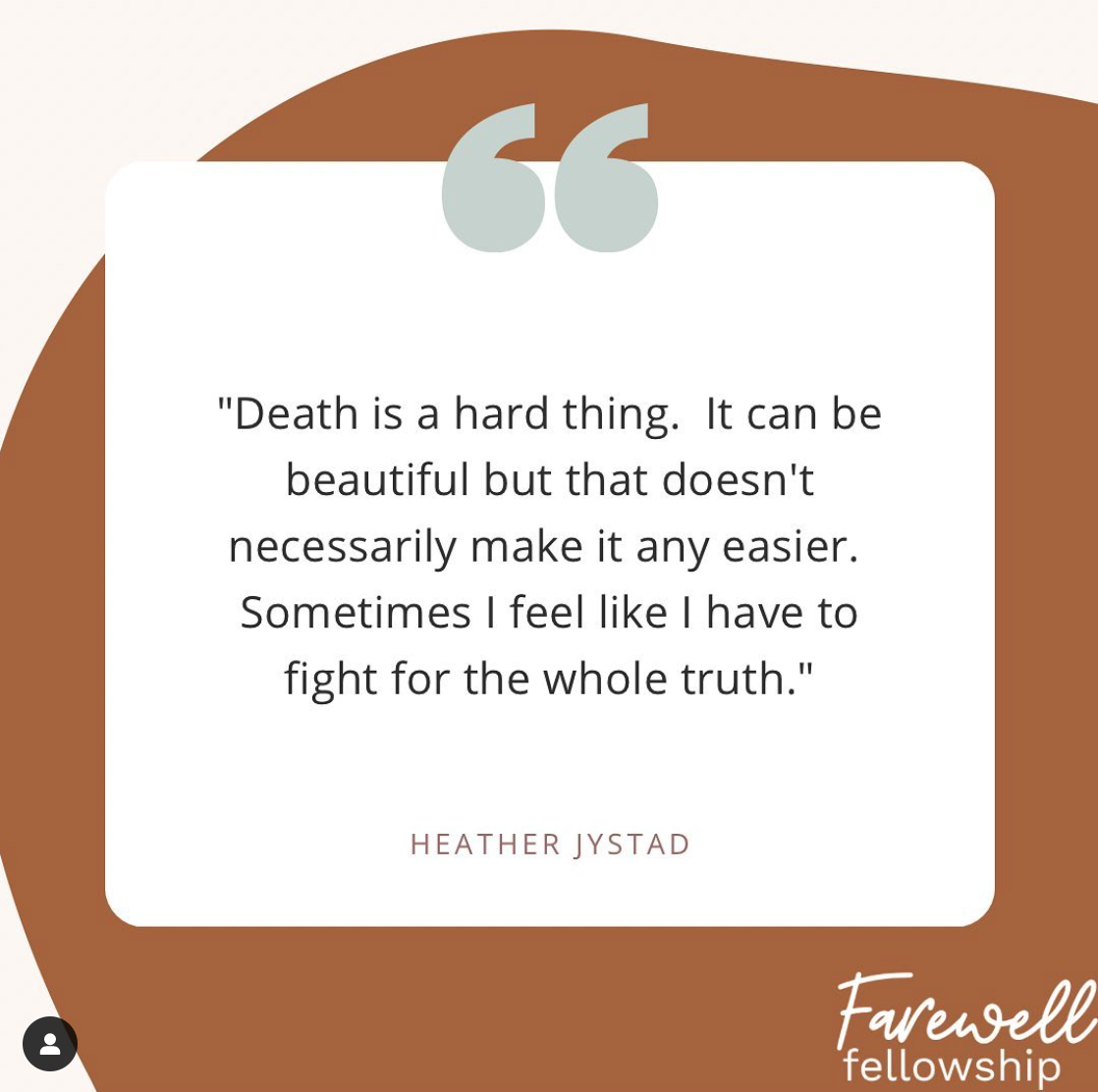Death is a hard thing.
Another death doula who has recently been chatting with me in my DM’s touched my heart deeply with these words: “Death is a hard thing. It can be beautiful but that doesn’t necessarily make it any easier. Sometimes I feel like I have to fight for the whole truth.”
I am going to imprint Heather’s words as a reminder on my work today. Yes, death is a hard thing. Yes, this sucks. Yes, you should be supported by your community. Yes, this is exhausting. Yes, this is isolating. Yes, this can be scary. Yes, there should be more services to support you in this difficult time.
Also yes, you are not alone. Also yes, I am here with you. Also yes, this is essential work. Also yes, you are doing me a great honor by trusting me to witness this sacred journey.
I have held a dying baby while her parent’s wept in agony and I don’t know that I did anything other than free up their hands so they could grip one another, knowing their precious one was held while they fell apart. I have sat beside a woman my age while she mourned the hole she was leaving in her son’s life by dying, there was nothing I could do but let my presence remind her that she is not alone. The truth is that I have accompanied a person who was dying through great agony where little was resolved. I don’t bear responsibility for this truth, it just is. I have also witnessed a journey of great healing and resolution for a dying client and I don’t claim that either.
I’m not here to sugar coat death or to massage the truth into softer corners. Death is a hard thing. But I can be one place that those I companion do not have to fight, where the whole truth is sacred and holy.
As death doulas, are we telling the whole truth about death? Are we worried that if we speak up about the injustices or the heartbreaks surrounding death that will drive away potential clients? As death educators are we glossing death in our “positivity” and neatly packaging our services to ease death’s discomfort? Can we validate the fear and agony and suffering that others are experiencing as they die in America today? If not us, then who?

